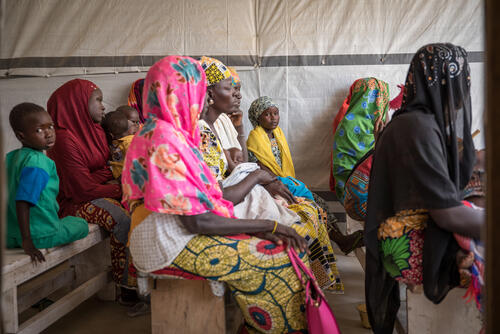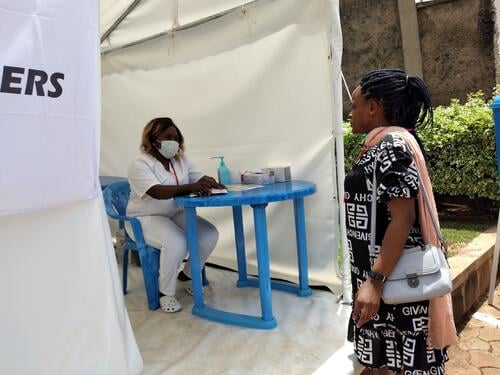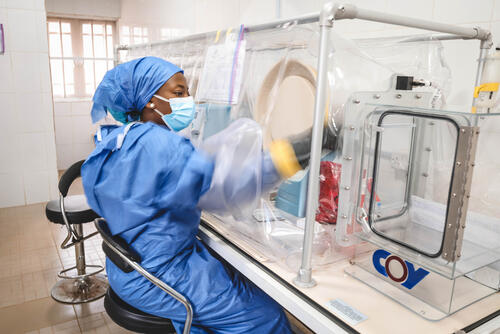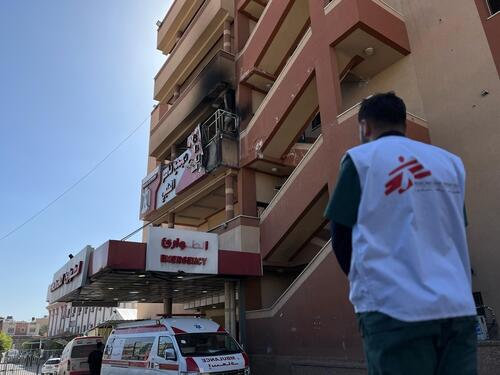The conflict in the Lake Chad region broke out in northeast Nigeria a decade ago. It has since spread into neighbouring Cameroon, Chad and Niger, creating one of the largest humanitarian crises in Africa.
Largely forgotten by the media, people in Cameroon’s Far North region continue to suffer daily violence at the hands of all parties in conflict, while also facing extreme poverty in a region subject to an unpredictable climate.
"They came and burned 56 houses. More than 600 animals were burnt: oxen, chickens, goats. We left our food behind, everything was burnt down, and two people were killed. We realised that it was impossible to stay. That's how we ended up in Kourgui, and others in MoraThe nearest urban centre. ."
Manuel* is one of the 42 community health workers working with Médecins Sans Frontières (MSF) to provide basic healthcare to people in hard-to-reach and insecure border regions between the Far North of Cameroon and neighbouring Nigeria. Over a month ago, he witnessed more than 2,500 residents of his village flee, following an attack by armed men.
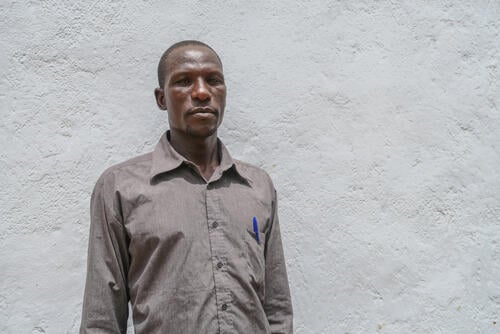
"It was difficult for us as it was during the rainy season,” says Manuel. “With our bicycles and rickshaws, we could escape – but to where? At first we stayed out in the open. Those who had some money looked for plastic in the market to cover themselves; others were welcomed by the local people and were given shelter."
Seven wounded people arrived that day at the Mora hospital.
"After that, a humanitarian organisation came, but it did not cover all our needs," says Manuel.
Largely ignored by the media, the conflict raging in the Lake Chad region between regional military forces and non-state armed groups continues, day after day, to have a devastating impact on the people in the region and strip them of hope.
"The attacks and displacement of people are no longer of the magnitude they were between 2014 and 2016, but there is continued insecurity in a region that is already among the poorest in the country," says Katrien Gedopt, MSF's head of mission in Cameroon.
In August 2019, the International Organization for Migration (IOM) counted more than 270,000 internally displaced persons and more than 100,000 NigerianIOM and UNHCR data refugees remaining in the Far North of Cameroon. Almost 80 per cent of these people said they had no intention of returning home due to lack of security.https://displacement.iom.int/system/tdf/reports/IOM_Rapport_RIS_Cameroun_Extreme-Nord_RD18_FR_20190611.pdf?file=1&type=node&id=5902
Most of the displaced people in Manuel's village prefer to travel two hours to work in the fields each day, and two hours in the evening to return to the area of Mora, the main urban centre in the region, rather than resettle in their village.
"Even going to the fields is dangerous,” says Manuel. “If you go a little too far from the village, [armed groups] can attack you in broad daylight. We always go in groups and there are boundaries that we do not cross. There are also a lot of abandoned fields, because you cannot access them."
At Maroua Regional Hospital, 60 kilometres south of the city – where MSF supports the Ministry of Health with the management of surgical cases – Josua is recovering with his leg in a cast and his shoulder bandaged. A few weeks ago, he was attacked while he was going to work in the fields around Maroua.
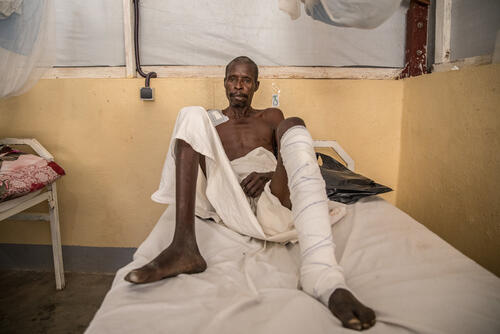
In this context of insecurity, and in a poor, agricultural region that is subject to an unpredictable semi-arid climate, both local and displaced people struggle to survive.
Yassoua Abba, who has been displaced for three years in Kourgui, very close to Mora, says, "[When I moved], I had to adapt to a new life where you have to pay for a house, wood and even water, which I did not do in my village. I work in the fields of other people and do housework to survive.”
“I earn 400FCFA per day (0.70 US dollars), but it does not allow me to feed my family properly,” she says. “Normally, you should eat three times a day, but we eat once a day because our means are insufficient."
Yassoua Abba has not heard from her husband since she had to flee her village and has been taking care of her six children, one of whom was treated by MSF for acute malnutrition.
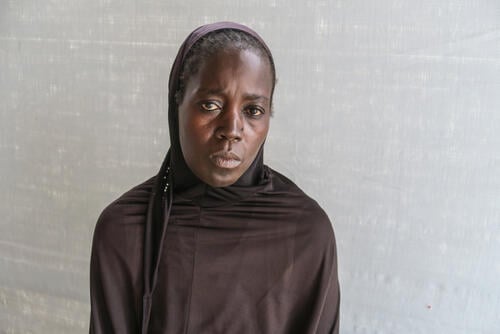
"Due to the insecurity it is hard to get to the fields, and this means I can’t provide for myself," says Jacqueline, another resident of Kourgui and mother of five children. One of her children was also treated by MSF for acute malnutrition, while two of the others received care for severe malaria, and another for typhoid fever.
In addition to the insecure context, many health facilities in the area have closed down or only provide minimal services, forcing some people to travel long distances to reach healthcare. The precarious living conditions also affect people’s health.
"The houses are badly insulated and people don’t have mosquito nets,” explains Traore Nanamoudou, the field medical officer for MSF in Mora.
“Sometimes they decide to sleep in the bush because they fear being attacked at night, which exposes them to diseases such as malaria, especially in the rainy season. It is hard for people throughout the region to reach clean drinking water, which contributes to high rates of diarrhoea, especially among children."
Christian*, an MSF community health worker in the region, confirms.
"People who live outside the city centre don’t have running water, and even the wells are damaged,” he says. “There are people who defecate outside, the river transfers all this and the children end up with diarrhoea because they drink water from the watercourse."
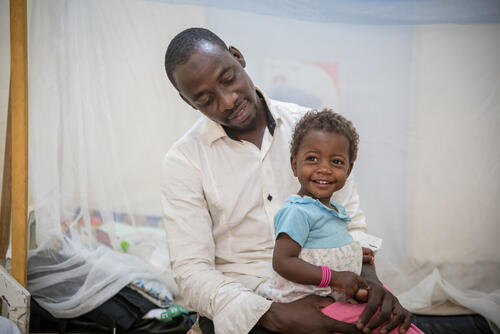
Oumi, a three-year-old girl, is the sweetheart of all the staff at Maroua Regional Hospital and wanders around the hallways visiting people. Her smile has become a symbol of people’s broken hope in this region.
More than a year ago, her mother was injured in her spine when she was caught in a crossfire. She had been trying to flee her village in northeast Nigeria due to insecurity, to seek refuge across the border in Cameroon.
“They shot her and she is seriously injured. The shot broke her back," says her husband Mohammed.
Since then, Oumi’s mother remains in bed, both legs paralysed. Despite the care provided by MSF, she cannot live a normal life. Her husband has no choice but to make the hospital his new home.
"I have nothing on me, no money,” he says. “I take care of my daughter, who is still very young, and her mother, and there is nobody to help me. I cannot go anywhere and I'm always thinking about them. There are times I can’t even sleep because of all the thoughts in my head," he says.
For the past four years, MSF has been assisting refugees and people displaced by the conflict in the Lake Chad region, as well as the host communities made vulnerable by the insecurity.
Since 2015, more than 400,000 general consultations have been provided and more than 17,000 surgical interventions performed.
*Not his real name
MSF has been present in Cameroon since 1984.
In the Far North of the country, in order to address the needs of people affected by the Lake Chad conflict, our teams work in Maroua Regional Hospital, providing care for war-wounded people through surgery and psychological support.
In Mora and Kourgui, towns close to the Nigerian border, MSF works alongside the Ministry of Health to offer psychological support for children, including malnourished children.
Since May 2019, a total of 42 community members have been trained in the management and/or identification of simple cases of the most common diseases affecting children (malaria, diarrhoea, respiratory infections and malnutrition). They work directly in villages in the border area, where access to medical care is difficult due to the insecurity and bad road conditions, and they refer complicated cases to the closest health centre or hospital.
In 2019, MSF conducted 80,000 general consultations, more than 3,500 surgical interventions and almost 4,000 psychological consultations. Close to 1,800 children were treated for malnutrition, as well as more than 16,000 for malaria and 12,000 for diarrhoea. .
MSF worked in Minawao refugee camp until 2017, and in Kousseri until 2018 – in Kousseri Regional Hospital as well as in three health centres in the city – providing care and support for surgery, mental health, and paediatrics, including for malnourished children.



